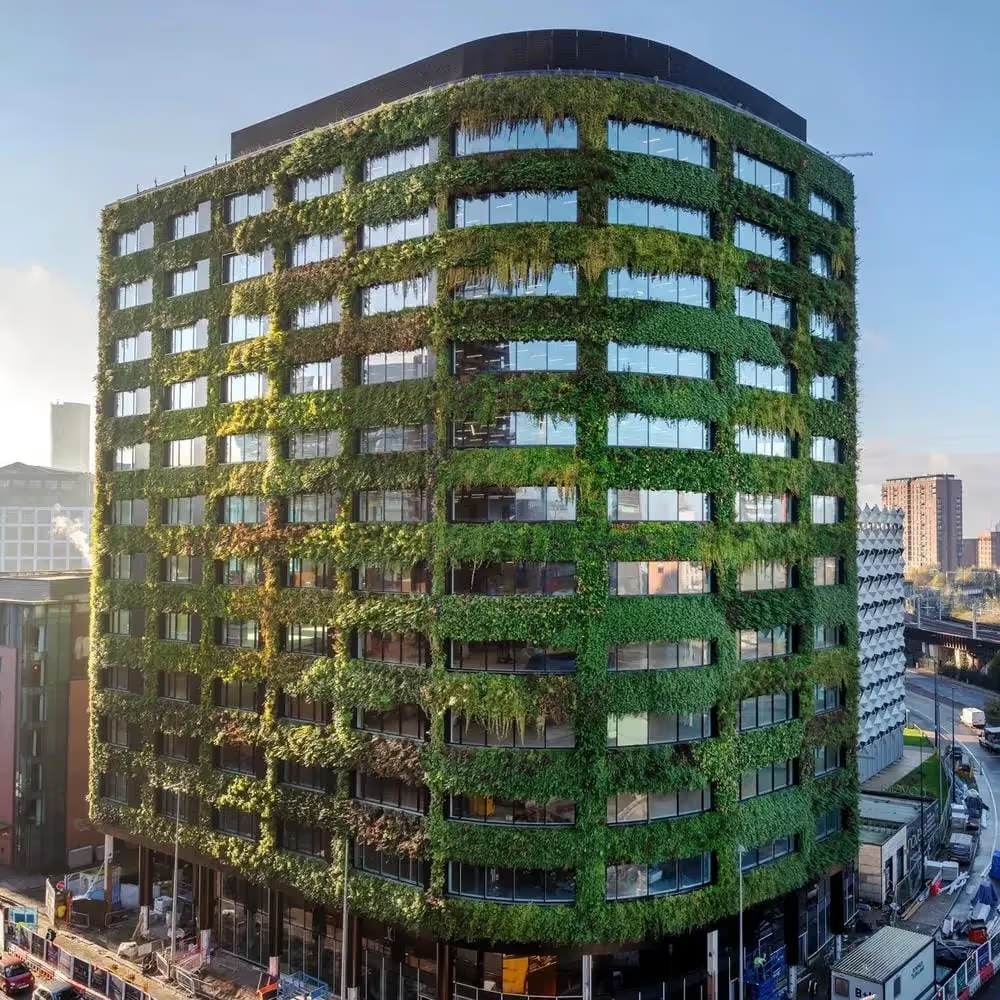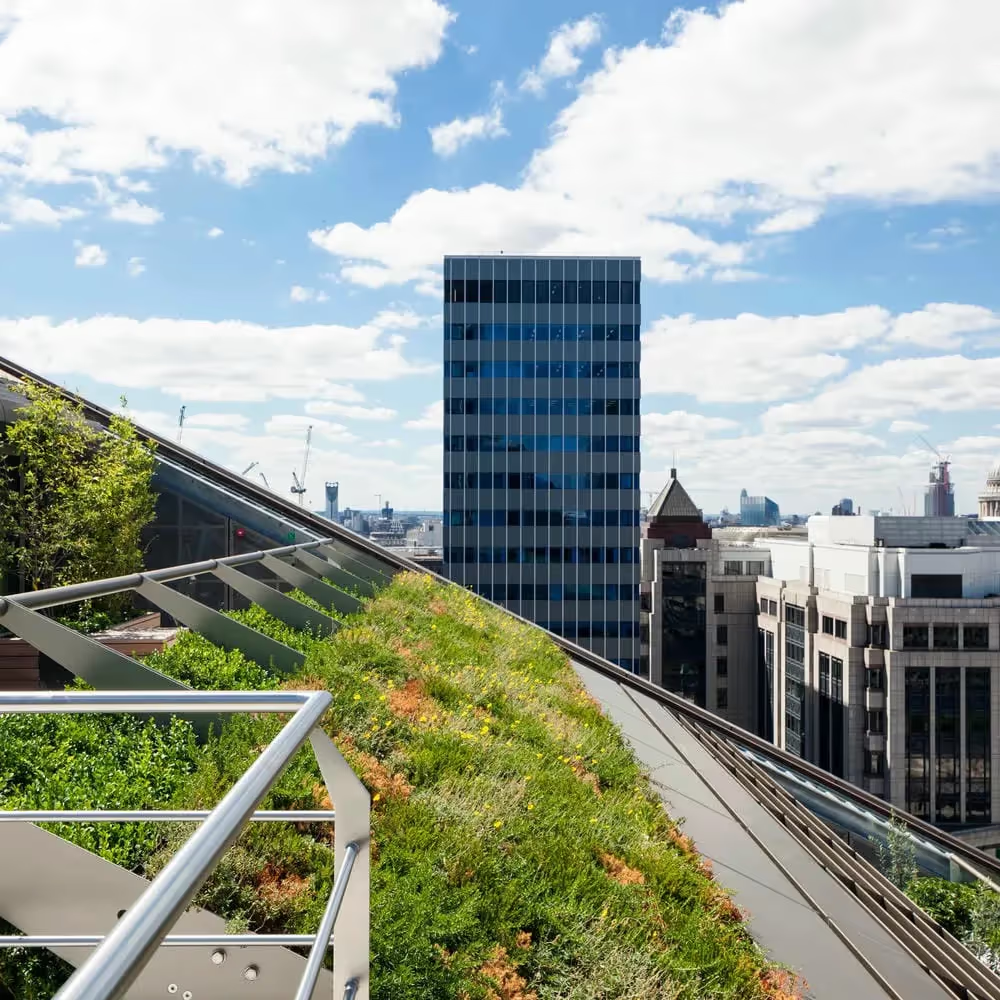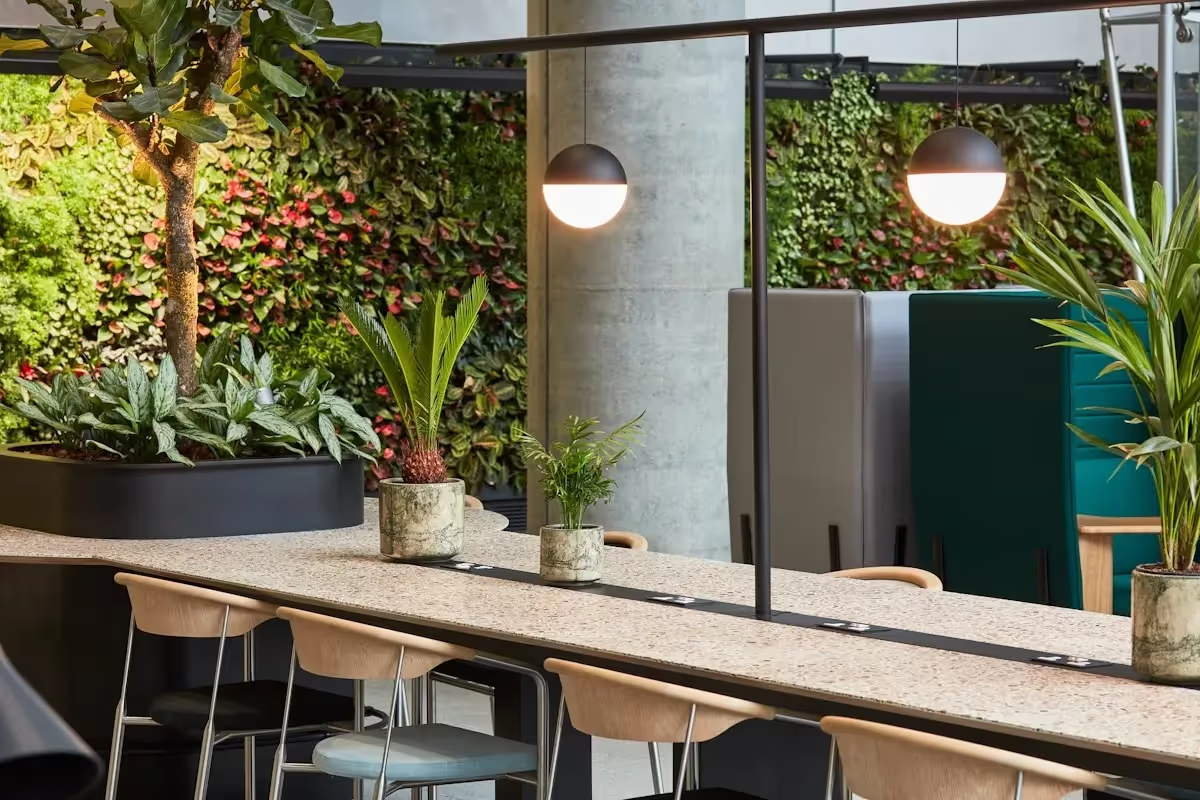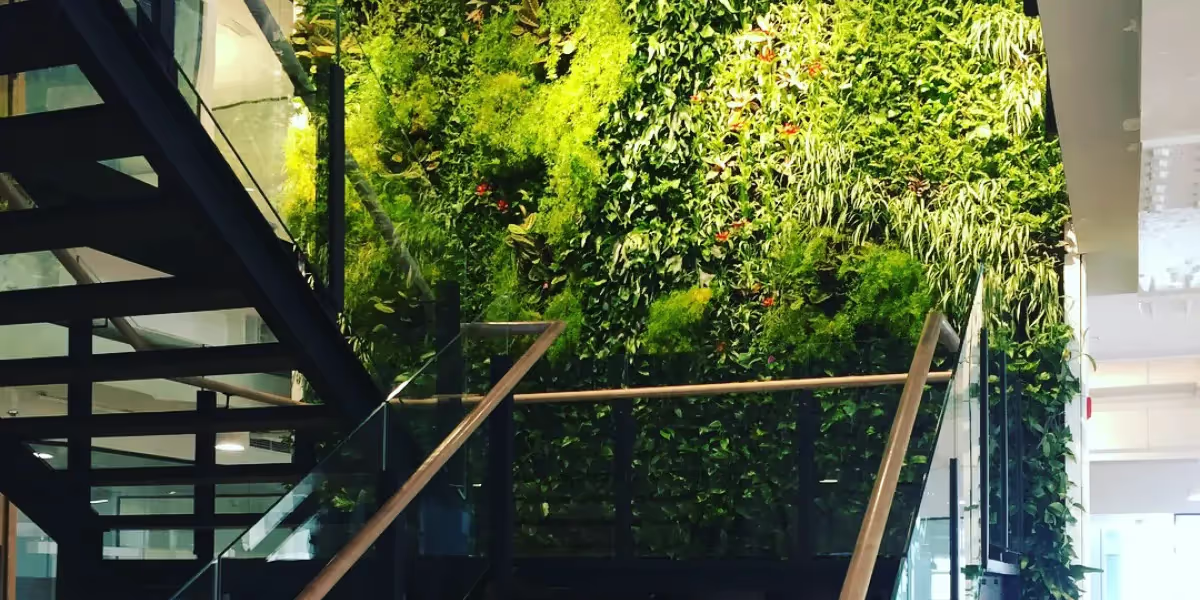The Distillery, Glassfields
The living wall is part of one of the facades, adding a multisensory touch to the design and a welcome contrast to the brick. Not only an impressive visual statement, the plant palette has been crafted to support local
The living wall is part of one of the facades, adding a multisensory touch to the design and a welcome contrast to the brick. Not only an impressive visual statement, the plant palette has been crafted to support local
_jdznc.avif)

Described as “an agile workplace designed to attract and retain talent”, the focus on this project, which is a part of the Glassfields masterplan in Bristol, was to create the best workplace for people to flourish. Making the building designs all the more unique is the fact that they are not a regular shape, but are set at angles to allow for visual and physical connectivity, as according to architects AWW, this allows people to see further and therefore entices them through the site.
The living wall is part of one of the facades, adding a multisensory touch to the design and a welcome contrast to the brick. Not only an impressive visual statement, the plant palette has been crafted to support local ecology and make the living wall an environmental asset to the local area.



_jdznc.avif)

An iconic project for Viritopia and the industry at large, Europe’s largest living wall redefined benchmarks in sustainable building design.
Office buildings
Modular

The plants chosen were to give year-round colour and interest whilst also creating a natural and bio-diverse backdrop in an area famous for its glass and concrete.
Office buildings
Modular

We are excited to share our part in this stunning example of biophilic design, combining natural light, open space, living walls and ‘hanging’ baskets and planters.
Office buildings
Modular

Installed by certified partner Desert Group, the Viritopia Living Wall beside the three-storey staircase provides a stunning plant backdrop.
Office buildings
Modular
Partner with the team behind the world’s largest and most awarded living walls.

